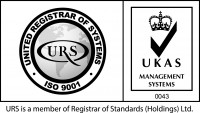When delving into Standby Power and UPS System Specifications, it is crucial to determine whether a single-phase or three-phase electrical supply is required. Small UPS systems typically operate with a single-phase input and output, while larger systems utilise three-phase input and output. In the mid-range, UPS systems commonly feature three-phase input and single-phase output configurations.
When considering UPS system specifications, it is important to note that not all critical loads necessitate protection from a UPS. Only systems that cannot tolerate brief power outages, such as servers, require UPS protection to prevent significant damage and operational issues. Conversely, other critical systems that can withstand short power interruptions, like server room cooling systems, should be safeguarded by a generator. Server room cooling systems are considered critical loads as their failure can lead to thermal shutdowns of the servers, protecting them from overheating.
The primary function of an online UPS is to regulate fluctuations in the main power supply, which typically occur for short durations. In the event of a complete power failure, the UPS relies on its battery to deliver a consistent power flow. When paired with a generator, the UPS ensures uninterrupted power until the generator seamlessly takes over.
An online UPS provides an uninterrupted electrical supply in the event of a main power failure and facilitates a seamless transition back to the main power once the issue is resolved. It incorporates an automatic bypass to the main power in case of an overload or fault condition.
One type of UPS system is the On-line/Double Conversion Technology, which offers the highest level of power protection.
The UPS converts incoming AC power from the main into DC power. The DC current powers the battery and the inverter, which then converts the DC back to AC, providing a regulated, clean, and conditioned AC output to the protected load.
The battery remains active, ensuring continuous power supply to the inverter during a main power failure. This uninterrupted supply to the load is achieved without any switching. Additionally, the UPS includes a static bypass circuit, serving as a failsafe mechanism by supplying AC main power to the load in case of an overload or internal fault.
Online UPS systems are typically recommended for use with generators due to their ability to tolerate voltage and frequency variations that can occur with generators. Battery pack extensions can also be employed to extend runtime.
An offline or standby UPS offers basic protection against main power supply issues. The AC main power passes directly through the UPS, which includes RFI filtering and limited spike protection.
During a main power failure or when the AC main voltage falls outside the UPS operating range, the inverter starts up, closes a relay, and provides power to the load. When the AC main power returns, the main output switches back to the main power, and the inverter shuts down. There is a brief interruption during the transfer to and from the inverter. The output waveform when the inverter is in use is usually a square wave or stepped sine wave.
Offline units typically have power ratings ranging from 250VA to 2kVA and offer limited communication capabilities. They are generally recommended for a single PC, workstation, or home office applications.
A line-interactive UPS provides greater protection than an offline UPS but does not offer complete protection against main power supply issues, as an on-line double conversion UPS system does.
These UPSs function similarly to offline UPSs but provide improved spike protection. They also have a wider tolerance to voltage fluctuations due to a voltage-trimming transformer or a similar device. This device adjusts the incoming AC main voltage when it is too high or too low, preventing unnecessary switching to battery power and conserving battery life. In the event of a main power failure
For any questions you have, please contact us so we can help
Fletcher Crescent
Plymouth
PL9 8LQ
Plymouth Tel: 01752 423151
Exeter Tel: 01392 341958
Truro Tel: 01872 300221
E-mail: sales@southwestpowerprotection.co.uk




